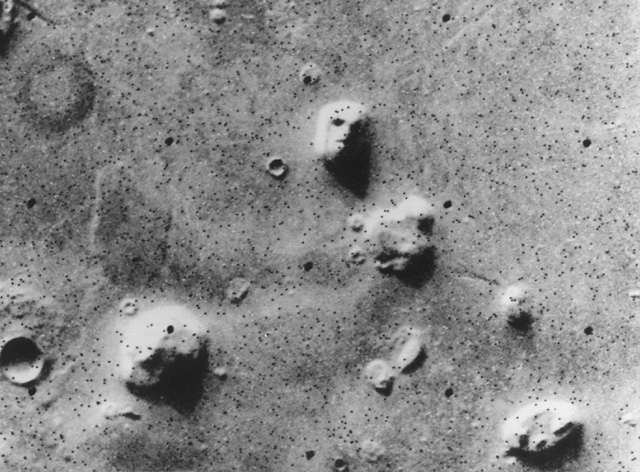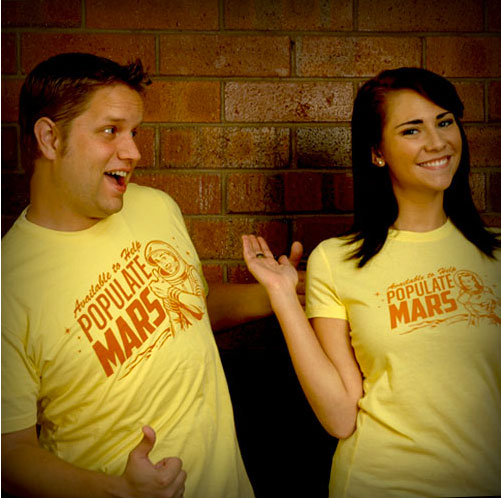Mars One Execs Dispute Criticism of Red Planet Colony Mission

Higher-ups at Mars One are disputing allegations by a former astronaut candidate that the colonization effort judges its applicants unfairly and is unable to finance itself.
Mars One is a nonprofit organization that aims to establish a human settlement on the Red Planet via a series of one-way trips. While its finances are not fully firmed up yet, Mars One representatives have said they will use capital from private investors, coupled with sponsorship deals, to bankroll the project. In March, the organization pushed back its first manned Red Planet landing by two years to 2027, citing a delay in investment funding.
That same month, Joseph Roche — an astrophysicist with Trinity College Dublin who was among 100 finalists vying to be a Mars One astronaut — was quoted extensively in a story published by Medium and wrote an article for The Guardian newspaper. In both publications, Roche said that the top candidates helped finance Mars One, and that the organization's astronaut selection process is flawed. (Roche is no longer a finalist, Mars One officials said.) [Images of Mars One's Red Planet Colony Project]
"After completing the interview stage, I felt that the selection process was not rigorous enough to reach the requisite standard of more traditional astronaut selection programs," Roche wrote in the article.
Roche's article came a month after The Guardian ran a list of "Top 10" candidates for Mars One who were selected by organizers based on the number of "points" each candidate had garnered during the selection process. Roche said these points were based on how much money the candidates donated to Mars One.
"I think that the shortcomings of the selection process, coupled with their unwillingness to engage and collaborate with the scientific community, means that the time might have come for Mars One to acknowledge the implausibility of this particular venture," Roche wrote. "They could then perhaps turn their efforts towards supporting other exciting and more viable space missions."
Disputing allegations
When reached by Space.com, Mars One CEO Bas Lansdorp said that Roche misunderstood the financing situation, as many candidates among the 100 finalists have not contributed any money at all. Money to date has come from a 2013 financing round, Lansdorp has said publicly. (Mars One has not disclosed how much this round raised.)
Get the Space.com Newsletter
Breaking space news, the latest updates on rocket launches, skywatching events and more!
Two finalists on Mars One's list backed Lansdorp, telling Space.com that they were not ordered to contribute money to be eligible for selection, although the organization did encourage everyone to chip in through voluntary purchases, such as buying T-shirts.
"It seems clear to me from the documentation on the website before the selection, before the process began, that Mars One has stated there will be no consideration for candidate selection based upon their material participation," said Peter Degen-Portnoy, a finalist in the Boston area.
Sonia Van Meter, who lives in Austin, Texas, said she paid only a $37 application fee to participate. (That fee varied by country.)
Mars One has a production company that is "in negotiation with international broadcasters" to showcase the next stage of selection, which will likely see the finalists do team challenges sometime this summer to see how they work in groups, Lansdorp told Space.com. A new deal is forthcoming and is expected to be closed by summer, he added. [The Boldest Mars Missions in History]
"We’ve closed a deal with a consortium of investors; the deal is signed, but it's only done when the money is in the bank," Lansdorp said. "Documents need to be prepared and approved and modified, and that's taking a lot longer than I expected."
Should the deal close, the money will be enough for Mars One to continue for roughly 2.5 years through the training and selection process, he added.
As for the selection process, both Lansdorp and Kraft told Space.com that the interviews — which winnowed down the list from more than 1,000 people to 100 — were short because the selection process isn't complete.
So far, Kraft said, the interviews have been brief and focused on general knowledge to test how willing the candidates are to learn, and if they understand the concept of risk.
The next round will be more rigorous, Lansdorp and Kraft said. Van Meter said she expects this to be the case.
"So far, they are looking at us, I think, as people, and I think the next step, in Round 3 or 4 — which they haven't talked about terribly much — we know it's going to be considerably more intensive," she said.

Split opinions

Until Mars One shows that it has closed a significant financing deal, it's difficult to know if the organization is capable of making it to the Red Planet, said space policy expert John Logsdon.
"They haven't shown any evidence that they have funding of a magnitude able to buy the hardware to get people to the Martian surface, or even to conduct the precursor robotic missions they contracted for," Logsdon, a professor emeritus at The George Washington University, told Space.com.
Logsdon said that, given this situation, he is astounded by the amount of media coverage Mars One receives. He added that an organization such as Explore Mars — another nonprofit — has more carefully thought through logistical and financing issues, which Logsdon heard about when he participated in the organization's Humans to Mars Summit earlier this year.
Follow Elizabeth Howell @howellspace, or Space.com @Spacedotcom. We're also on Facebook and Google+. Originally published on Space.com.
Join our Space Forums to keep talking space on the latest missions, night sky and more! And if you have a news tip, correction or comment, let us know at: community@space.com.

Elizabeth Howell (she/her), Ph.D., was a staff writer in the spaceflight channel between 2022 and 2024 specializing in Canadian space news. She was contributing writer for Space.com for 10 years from 2012 to 2024. Elizabeth's reporting includes multiple exclusives with the White House, leading world coverage about a lost-and-found space tomato on the International Space Station, witnessing five human spaceflight launches on two continents, flying parabolic, working inside a spacesuit, and participating in a simulated Mars mission. Her latest book, "Why Am I Taller?" (ECW Press, 2022) is co-written with astronaut Dave Williams.
